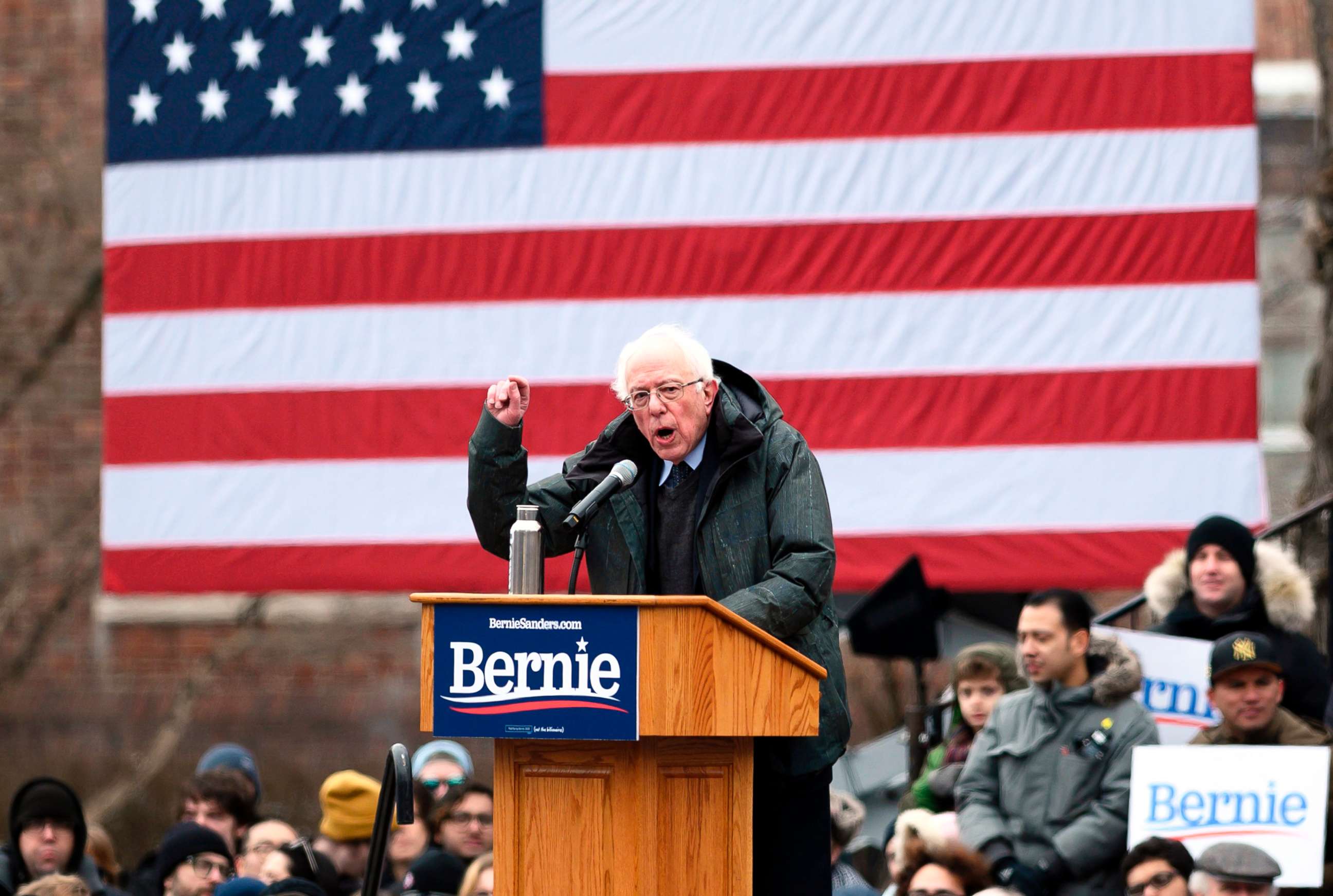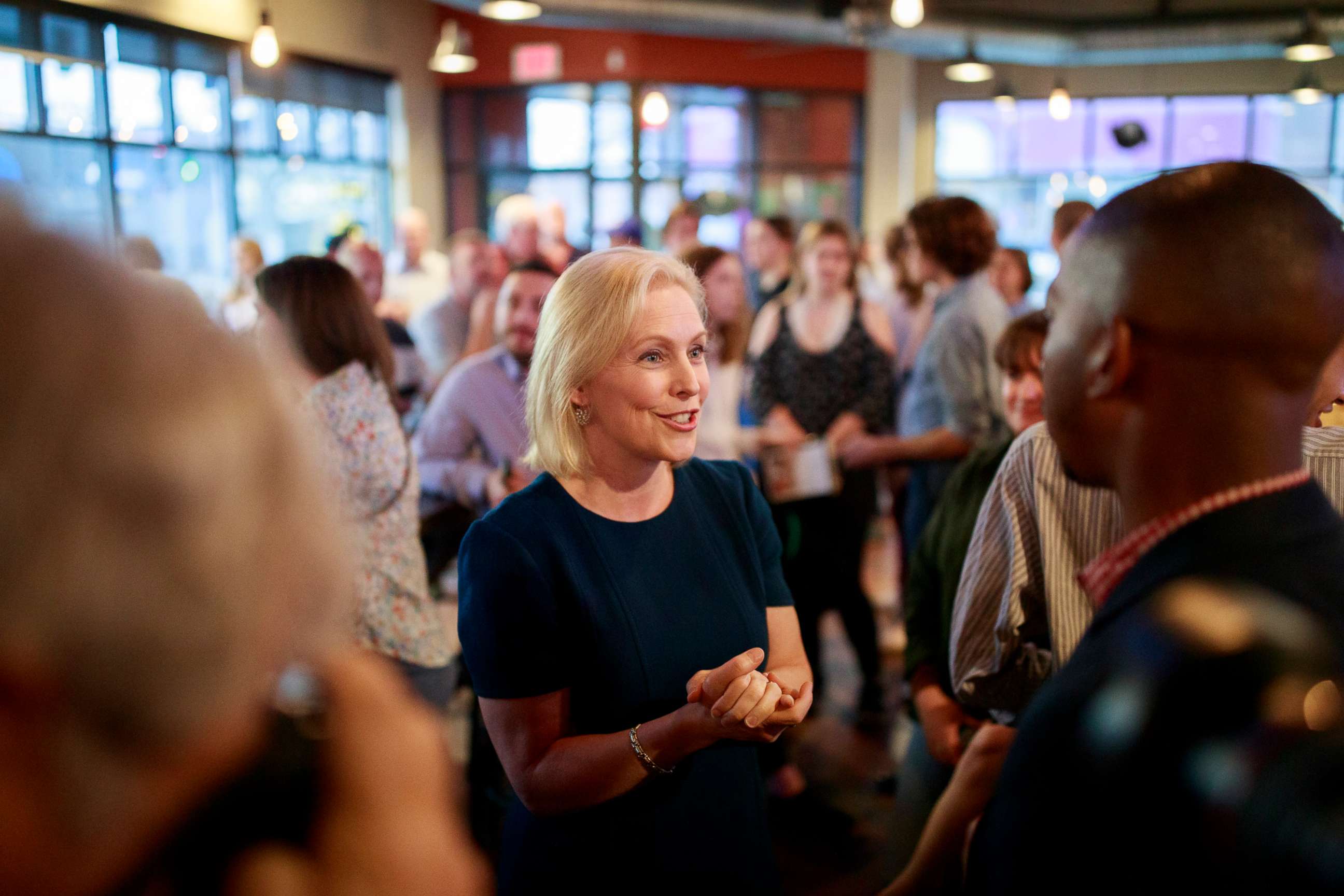2020 candidates back away from big money, focus on small-dollar donors
Rejecting corporate money in favor of grassroots fundraising is ubiquitous.
The 2020 Democratic presidential candidates are forgoing corporate money in an effort to capture small donors — a growing trend of demonstrating support from all kinds of Americans, not just those who can write big checks.
"It’s the importance of showing that there is strength in numbers for candidates,” said Democratic strategist Stefanie Brown James. “It’s not just that you have a handful of wealthy donors who are putting forth candidates that they support."
This cycle, rejecting donations from corporate political action committees is nearly universal within the Democratic field.
In the 2016 presidential election, Democratic nominee Hillary Clinton accepted more than $1.7 million in PAC donations– which included corporate, leadership and ideological PACs. It's unclear how much of that money was from corporate donors.
Sen. Bernie Sanders, her Democratic primary competitor, opted out of accepting corporate donations during that cycle and will do so again in the run-up to the 2020 election.

While most Democrats running for president have sworn off accepting donations from corporate PACs, not all have ruled out taking PAC money entirely. However, first-quarter fundraising reports from the Federal Election Commission (FEC) showed no candidates raking in exceptionally large sums from non-corporate PACs.
Sheila Krumholz, the executive director of the Center for Responsive Politics, said swearing off PAC money isn't new.
It’s especially important for the Democratic field since they stand out more if they don’t take this pledge.
"Rejecting PAC money was also popular in the early '90s but was never as common as it is now," Krumholz said.
She says the concept regained popularity in 2017 when the "No PAC Caucus" was founded. It is a group of congressional members aiming to limit the influence of money in politics and presidential candidates are following suit.
Sen. Kirsten Gillibrand, D-N.Y., has rejected donations from corporate PACs and federal lobbyists. She also released the “Clean Elections” plan, a proposal that calls for federal candidates to decline donations of more than $200 in order to tap into public campaign funds dubbed “democracy dollars.”
Under her plan, democracy dollars would be given to every eligible voter to spend on federal candidates of their choosing.

“We're really excited about how seriously they're taking this,” said Tiffany Muller, president of Democratic campaign finance reform group End Citizens United, a proponent of Gillibrand's plan. “They're recognizing that the American people are demanding that we change a broken system where money currently is what setting the policy and setting the agenda.”
“To get anything done in Washington, we have to address the money and greed that corrupts politicians and prevents progress on issues like gun violence prevention, lowering the cost of prescription drugs and addressing climate change,” Gillibrand said in a statement.
She isn’t the only candidate who has taken a definitive stance on the issue. Sen. Elizabeth Warren, D-Mass., took a pledge to skip big fundraisers with wealthy donors altogether.
Former Vice President Joe Biden held a fundraiser for donors with deep pockets the day he announced his campaign. His spokeswoman, Kate Bedingfield, however, has said Biden “does not welcome support” from super PACs.
Former Texas Rep. Beto O’Rourke raised $6.1 million in the first 24 hours of his campaign. The average donation to O'Rourke's campaign was $48.
Twelve candidates have signed the No Fossil Fuel Money Pledge -- a promise not to knowingly accept contributions more than $200 from oil, gas and coal industry executives or PACs funded by those companies.
“I am really encouraged by how committed the whole field is to reforming our broken system and to empowering small-dollar donors and reducing the influence of big money in our politics,” said Muller.
Others, like Krumholz, said that the candidates are sacrificing little by promising not to accept these funds.
“They need far more money than PACs can deliver for a financially viable presidential campaign,” said Krumholz. “It’s especially important for the Democratic field since they stand out more if they don’t take this pledge at this point since most of their field is taking the same stand.”
The focus on small donors may also be a result of the Democratic National Committee's rules to qualify for primary debates. There are two ways candidates qualify for the debates: Candidates must receive donations 65,000 people across 20 states with 200 unique donors in each state or they must reach 1 percent in three state or national polls.
“People are trying to get on that debate stage,” said Brown James, the Democratic strategist. “They are trying to have their message heard and they’re trying to work within the stipulations that have been presented by the party, which ultimately is working to get more people, everyday Americans around the country, engaged.”




